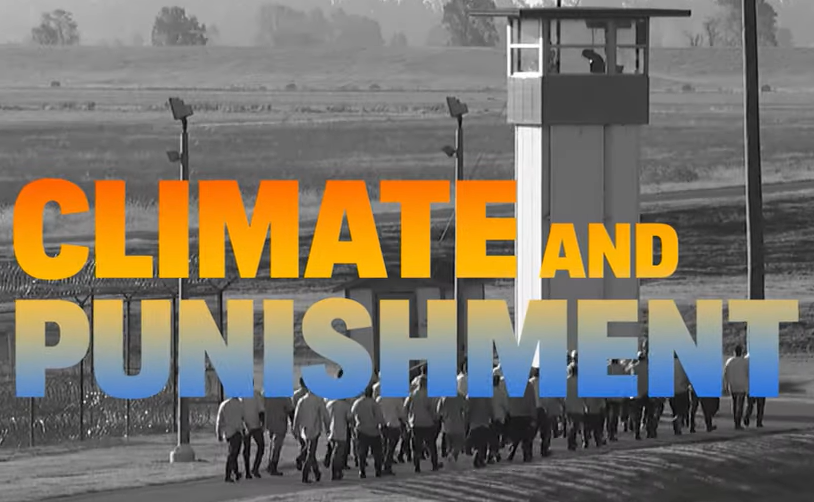Photo: Screenshot
New York, NY – February 2022 – The Intercept has launched “Climate and Punishment,” a data-driven investigation by reporter Alleen Brown on the effects of the climate crisis on incarcerated people.
The project harnesses datasets for heat risk, wildfire risk, and flood risk and juxtaposes them against a federal government index of facilities from across the United States’s sprawling mass incarceration system. Our findings reveal dire conditions in prisons across the country – conditions that are set to deteriorate as the climate crisis worsens – and highlights the political figures and institutional morass that are leaving these communities at risk.
The Intercept is publishing an initial suite of three stories and one short film, with a collection to follow for continuing coverage. Each of the first three stories highlight the impact of heat, wildfires, and floods on incarcerated people, respectively, and the 10-minute documentary follows several individuals whose lives have been impacted by extreme heat and wildfires while they or their loved ones were incarcerated.
A project-specific webpage shepherds readers to our original reporting, searchable interactive features with visual representations of detention facilities mapped against climate risks, and videos that tell the stories of families and facilities that have been affected by worsening environmental conditions.
In “Trapped in the Floods,” Brown details the flooding events at a detention facility in Dixie County, Florida, where prisoners became trapped in ankle-deep water contaminated with human feces. According to The Intercept’s analysis, 621 facilities across the U.S. have major- to extreme- flood risk.
“Boiling Behind Bars” focuses on the effects of extreme heat on incarcerated people and on the alarming conditions at Coffield Unit, a state prison near Palestine, Texas. Coffield is among the hottest places in the nation for incarcerated people, and temperatures are expected to rise in the coming years. As of 2020, Coffield was one of 21 Texas state prisons with no air conditioning, according to public records obtained by the Texas Prisons Air-Conditioning Advocates, an organization founded by Casey Phillips. (By the end of the century, thousands of U.S. detention facilities will see sustained dangerous temperatures — sometimes running more than 50 days a year.)
“Dark, Smoky Cells” highlights the consequences of the 2021 Dixie fire on a prison in Susanville, CA, where inmates were without lights for nearly a month after the facility’s backup generator failed. No power meant no cooking, no televisions to furnish a distraction. Time in the communal day room was scrapped. Prisoners could only rarely call their loved ones. Toilets stopped working for hours at a time and the ventilation systems would go down as smoke wafted into the facility. (A California prisons official said the facility was “running full-power operations.”)
While the data spans all 50 states, our analysis identified three states – Texas, Florida, and California – in which incarcerated people are at especially high risk for adverse effects. Yet, unless policy makes do more to stop runaway global warming and improve conditions inside carceral facilities, the country’s entire prison population is expected to face grave consequences by the end of the century.
Video: Politicians Ignore Vulnerable Prisoners as Climate Change Worsens












